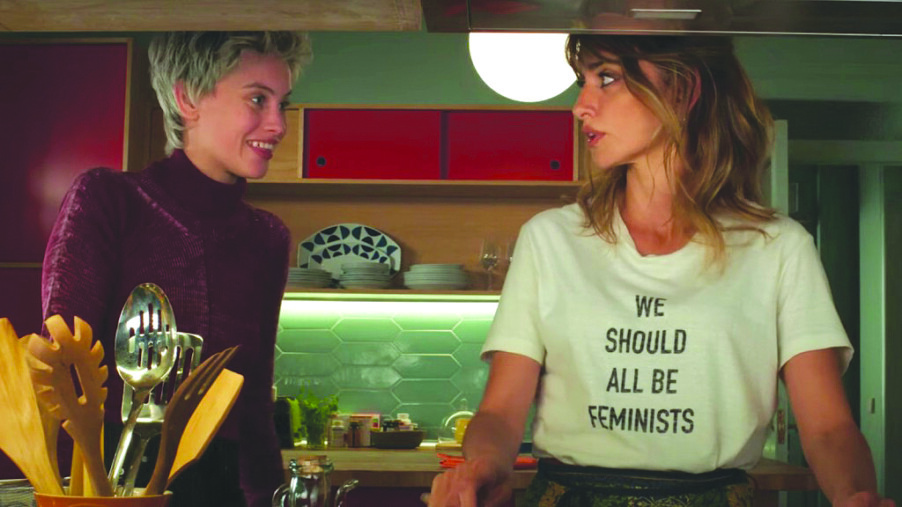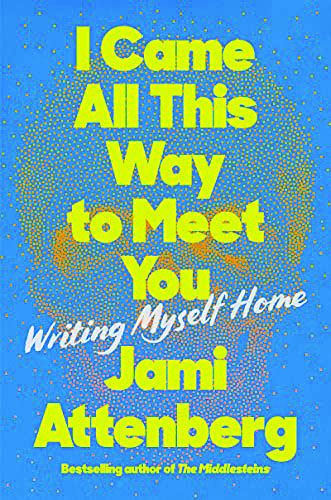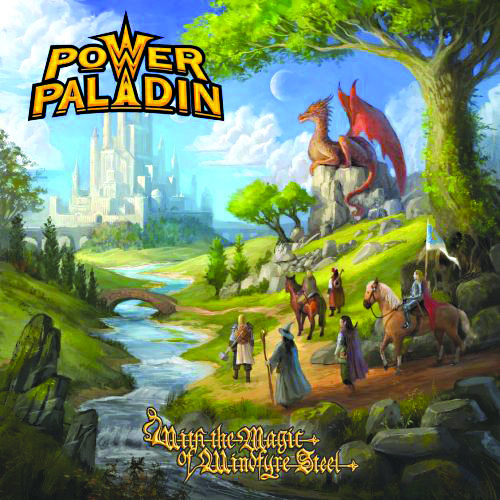I Came All This Way to Meet You, by Jami Attenberg (Ecco, 263 pages)
It is apparently the fashion to write a memoir about writing after having achieved at least some modest success. Maybe this isn’t new and goes all the way back to Montaigne, but the trend seems to have accelerated after Anne Lamott’s ever popular Bird by Bird, published in 1994.
Into this space enters Jami Attenberg, a novelist of acclaim whose body of work includes The Middlesteins, her 2012 portrait of a family obsessed with eating; 2017’s All Grown Up (given a B+ here), and most recently, 2019’s All This Could Be Yours.
In I Came All This Way to Meet You, subtitled “writing myself home,” Attenberg gets personal in a refreshingly candid manner. It’s not so much a book as it is a conversation, the sort that occurs at a bar after strangers have had a couple of shots.
It’s a conversation that takes place during the pandemic; Attenberg peppers the memoir with mentions of life during Covid-19 and she occasionally touches on ongoing social issues. But it’s mainly the story of an ordinary woman who got tired of all the ordinariness in her life and set out to build something different. As Attenberg writes in the opening, in which she bluntly summarizes the first 20 years of her working life, most of her jobs were essentially bringing other people’s ideas into being.
“Eventually I thought: What about my ideas? When do I own them?” she writes. “And once I realized that, I couldn’t stop thinking about it. I could not stay where I was any longer.”
In a perfect world, an aspiring writer who comes to this conclusion would then find an oceanside cottage in which to write her first book, ensconced there rent-free except for the task of walking someone’s dog. And for Attenberg, it was in fact a perfect world, at least in this regard.
After she spent decades working invisible, low-paying jobs — to include temping, waitressing, typing, blogging — a supportive friend helped set her up in this space, and Attenberg started bringing her characters to life. But that was the extent of her perfect world. It was a hard slog to get to where she is today, an “Author with a capital A,” and she shares her remembrances of this unglamorous life, much of which involved arduous road trips in an old car, trying to get people to buy her books when people didn’t want them — including, at one point, her publisher, who dumped her after her first few books didn’t sell well.
In many ways it would be hard to find a more unappealing depiction of a novelist’s life, from driving alone in a white-out in Wyoming to being booed at a literary festival when she was introduced as being from Brooklyn.
At one point she says this about a book tour: “I do my event. A Jewish event, a panel of four authors. I sell five books. Thanks, Jews. Another car to the airport, two hours before my flight. And there I sit.”
That paragraph, in all its pith, demonstrates precisely why this memoir is so engrossing. Attenberg is completely uninhibited; you never know what she is going to say next. The writing is as choppy as the sea, and as unpredictable, as is her life story, which she unspools gradually.
As much as the memoir is about Attenberg, it’s also about her friends. Despite being a generally anxious person, she has the enviable talent of finding and cultivating friends, such as the Alaska mom she met in Guatemala when she was doing travel writing — a woman who travels internationally for a month by herself every year — or the younger Italian novelist she spotted at a literary festival wearing a black Victorian gown. (“I immediately thought: Her, I must know.”)
On the subject of friendship, Attenberg waxes philosophical, writing: “The thing about bad friends is you never realize when you’re being one until it’s too late. Forgiveness and understanding? Not in this economy.”
She also brings that candor to writing about her romantic relationships. One, undertaken after a solitary trip to Sicily during which a restaurant refused to seat her because she was alone, was particularly promising: “No children, no desire for them whatsoever. No old marriages rotting in the past. We both owned our own homes. We both had flexible schedules. He even promised to quit smoking for me.”
There may have been no children, but a beautiful essay grew out of this relationship, about their trip to a “bone chapel” in Portugal — Capela dos Ossos, circa the 16th century, built using the remains of more than 5,000 people. Visiting it, Attenberg writes, she was “in a state of thrall to the bones.”
“Everything was dead … and yet it felt so alive to me at the same time. It was designed for thought. Alive and dead, stories everywhere. Thousands of possibilities, thousands of stories. The bones had been brought together in this space, the bones would never be alone. They have each other, I thought. And all of us, visiting them, every day.”
Bones became a metaphor for her life, and ultimately for the relationship as well. She is a work in progress, as we all are, but just is more talented than other people in lassoing the mess into art.
To call Attenberg an original thinker is an understatement. Her words crackle like an overbuilt fire, and whether or not you’ve read her work previously, this thoughtful memoir is worth a look. A
Book Notes
With Valentine’s Day coming up, you’re probably scouring the shelves of your local independent bookseller looking for the perfect book to give to your significant other. If you’re not, you should be. Chocolate is gone in a week. The perfect book may outlast your relationship.
You can buy love poems, of course — a new title is Love by Night (192 pages, Andrews McMeel) by SK Williams. But these are not to be confused with poems about love, such as Please Love Me at My Worst(Andrews McMeel, 144 pages), last year’s collection by Michaela Angemeer.
You can buy books about great relationships other people had — such as Dear Scott, Dearest Zelda (Bloomsbury, 432 pages), the story of F. Scott and Zelda Fitzgerald’s marriage in their own words. Or books that promise to help you have a great relationship of your own, such as Fierce Love, Creating a Love That Lasts — One Conversation at a Time (Thomas Nelson, 240 pages).
Or you can forget the cheesy sentimental stuff and give your significant other a book about love that isn’t really about love, but just has love in the title and is a cool and interesting book. To wit: Love Poems (for Anxious People) by John Kenney, known for his writing in The New Yorker and also for two previous books, Love Poems for Married People and Love Poems for People With Children. It’s from G.P. Putnam’s Sons, 112 pages. With poems titled “Here comes someone whose name I should know” and “Am I meditating yet?” these are not really love poems, but that’s kind of the point.
I Love You But I’ve Chosen Darkness (Riverhead, 304 pages) by Claire Vaye Watkins is a novel released last fall that’s probably more of a wry gift for your BFF when you exchange cards about how much you hate Valentine’s Day. But we can’t resist the title. Premise: Woman with postpartum depression leaves her baby and husband and goes all Thelma and Louise without the Louise. It’s widely described as hilarious.
The Love Songs of W.E.B. Du Bois (Harper, 816 pages) by Honoree Fanonne Jeffers was an Oprah’s pick last year and Barack Obama said it was one of his favorite books. It’s a novel that reads like poetry and it is not actually about Du Bois, the late Civil Rights activist, historian and sociologist, but his words are interspersed throughout.
But there are limits to how edgy you can be when selecting a book with love in the title. The ‘I Love My Instapot’ Anti-Inflammatory Diet Recipe Book: Not recommended. If that’s your only choice, go with the candy.
Book Events
Author events
• ERIK LARSON Author presents The Splendid and the Vile. The Music Hall Historic Theater, 28 Chestnut St., Portsmouth. Wed., Feb. 16, 7 p.m. Tickets cost $13.75. Visit themusichall.org or call 436-2400.
• GARY SAMPSON AND INEZ MCDERMOTT Photographer Sampson and art historian McDermott discuss New Hampshire Now: A Photographic Diary of Life in the Granite State. Sat., Feb. 19, 9:45 to 11:45 a.m. Peterborough Town Library, 2 Concord St., Peterborough. Visit monadnockwriters.org.
• HOWARD MANSFIELD Author presents Chasing Eden. Sat., March 19, 9:45 to 11:45 a.m. Peterborough Town Library, 2 Concord St., Peterborough. Visit monadnockwriters.org.
• BECKY SAKELLERIOU AND HENRY WALTERS Becky Sakelleriou presents The Possibility of Red. Henry Walters presents Field Guide A Tempo. Sat., April 16, 9:45 to 11:45 a.m. Peterborough Town Library, 2 Concord St., Peterborough. Visit monadnockwriters.org.
Poetry
• ROB AZEVEDO Poet reads from his new book of poetry, Don’t Order the Calamari. The Bookery, 844 Elm St., Manchester. Thurs., Feb. 3, 6 p.m. Visit bookerymht.com.
• REBECCA KAISER Poet presents Girl as Birch. Virtual event hosted by Gibson’s Bookstore in Concord. Mon., April 11, 7 p.m. Via Zoom. Registration required. Visit gibsonsbookstore.com or call 224-0562.
Book Clubs
• BOOKERY Online. Monthly. Third Thursday, 6 p.m. Bookstore based in Manchester. Visit bookerymht.com/online-book-club or call 836-6600.
• GIBSON’S BOOKSTORE Online, via Zoom. Monthly. First Monday, 5:30 p.m. Bookstore based in Concord. Visit gibsonsbookstore.com/gibsons-book-club-2020-2021 or call 224-0562.






